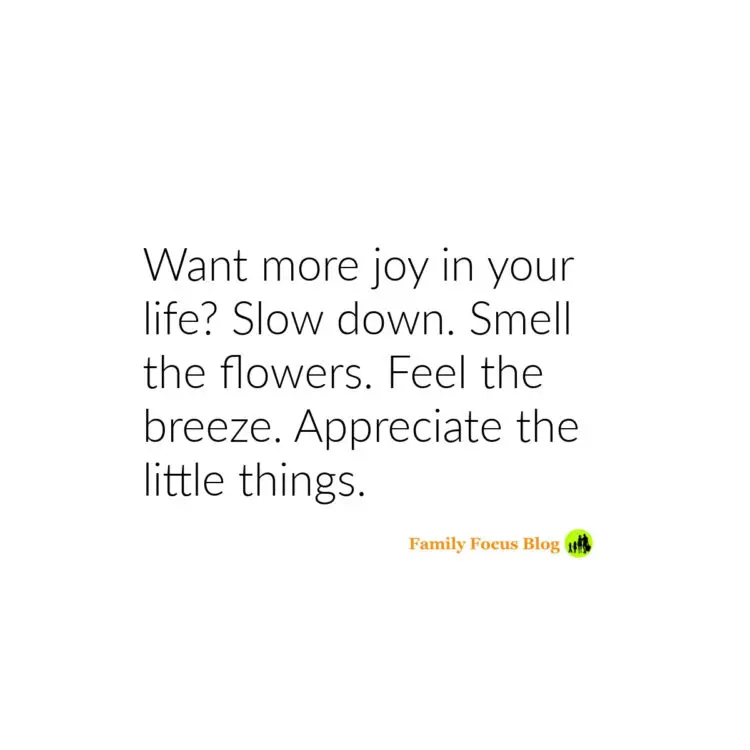Discover unique and unconventional methods to find genuine happiness that go beyond the ordinary advice. This article explores surprising techniques and perspectives that can lead you on a path to lasting joy and fulfillment. Learn how embracing imperfections can be the secret to unlocking true happiness in your life. This article explores the power of self-acceptance and embracing the beautiful messiness of life to find lasting happiness.
We all know that one person — you know, the one who seems to have everything you want, and never stops talking about it. We all have this bad habit, too, of telling ourselves that if we could just have this certain amount of money or obtain this particular job that we would then, and not a moment sooner, be truly happy. The truth is, though, that no matter how many good things life hands us, we will still want more. There are two different ways to respond to this problem. One is to accept that we will never be happy. The other is to find your happiness with what you do have. The real question is, then, how do we find happiness with what we do have? Here are a several ways to find happiness.

Understanding the Science of Happiness
To truly grasp the science behind happiness, we need to dive into the depths of psychology and explore the factors that contribute to our overall well-being. One key aspect to understand is that happiness is not solely dependent on external circumstances. While external factors certainly play a role, such as relationships, career success, and material possessions, a significant portion of our happiness is within our control. This is where the science of happiness comes into play—by understanding the factors that influence our happiness, we can make intentional choices and cultivate habits that promote lasting contentment.
A central concept in the science of happiness is the idea that our happiness levels are not fixed. Contrary to popular belief, our happiness is not predetermined by genetics or external circumstances alone. Research has shown that we have the power to actively shape our happiness through intentional thoughts and actions. This is great news because it means that we can take proactive steps to improve our happiness levels, regardless of our starting point.
Another crucial aspect of the science of happiness is the understanding that happiness is a multifaceted construct. It encompasses not only positive emotions and pleasure but also a sense of purpose, meaning, and overall life satisfaction. In other words, happiness is not just about experiencing fleeting moments of joy, but rather about cultivating a deep and lasting sense of well-being.
Through extensive research, scientists have identified various evidence-based strategies that can significantly enhance our happiness levels. These strategies range from giving thanks and practicing mindfulness to building strong social connections and prioritizing self-care. By incorporating these strategies into our daily lives, we can begin to unlock the secrets to long-term happiness and well-being.
Tips To Help You Find Your Happiness:
Discover the latest scientific research on happiness and learn seven evidence-based strategies to boost your happiness levels. This article dives into the psychology behind happiness and provides actionable tips to enhance your overall well-being.
Count your blessings
It’s an old saying that you are probably tired of hearing, but it has its merit. You simply cannot expect to live a happy life while allowing yourself to focus on any and every bad thing that happens to you. The more you focus on the people and things you do have going for you, the better you will feel. Try to practice gratitude daily so that it becomes a habit.
Studies consistently show that practicing gratitude can have a transformative effect on our mindset, emotions, and even our physical health.
Gratitude is more than just saying “thank you” when someone does something kind for us. It is an intentional and mindful practice of recognizing and appreciating the positive aspects of our lives, both big and small. By cultivating gratitude, we shift our focus from what might be lacking or causing us stress to what we have and value.
Nurture Social Connections
Research consistently reveals that humans are inherently social creatures who thrive when we feel a sense of belonging and connection with others. By nurturing our social connections, we can create a solid foundation for long-term happiness. Whether it’s spending time with friends, family, or participating in social activities, engaging in meaningful relationships can boost our mood and provide a sense of fulfillment. In fact, studies have shown that people with strong social ties experience reduced rates of depression and anxiety, as well as improved physical and mental health.
One reason why social connections have such a profound impact on our happiness is that they provide us with a support system. When we have people we can lean on during challenging times, it not only helps us navigate through difficulties but also allows us to share in moments of joy and celebration. The emotional support we receive from our social connections helps us cope with stress, provides a sense of purpose, and promotes overall well-being.
Additionally, social connections can also enhance our sense of self-worth and belonging. When we feel accepted and valued by others, it boosts our self-esteem and contributes to a positive self-image. This, in turn, increases our overall life satisfaction and happiness levels.
To nurture social connections, it’s important to prioritize spending quality time with loved ones and engaging in activities that foster connection and shared experiences. This could involve organizing regular gatherings with friends, joining clubs or groups with similar interests, or even seeking out new social opportunities within our communities. Building and maintaining social connections requires effort and intentionality, but the rewards in terms of happiness and well-being are immeasurable.
Practice Mindfulness
In our fast-paced and often chaotic lives, it’s easy to get caught up in the busyness and distractions that surround us. However, taking the time to pause and be fully present can have profound effects on our well-being. Research has shown that practicing mindfulness can reduce stress, enhance self-awareness, and improve overall mental and emotional health.
To incorporate mindfulness into our daily lives, we can start by setting aside a few minutes each day for meditation techniques . This could involve finding a quiet space, sitting or lying down in a comfortable position, and simply observing our breath or bodily sensations. As thoughts or distractions arise, we can gently acknowledge them and bring our focus back to the present moment.
Beyond formal meditation, mindfulness can also be integrated into our everyday activities. For example, while eating a meal, we can savor each bite, paying attention to the flavors, textures, and sensations in our mouths. When going for a walk, we can tune in to the sounds of nature, the feeling of our feet hitting the ground, and the movements of our body. By engaging our senses and fully immersing ourselves in the present moment, we can cultivate a greater sense of peace and contentment.
By incorporating mindfulness into our lives, we can become more attuned to our thoughts and emotions, develop a greater sense of self-compassion, and cultivate a greater appreciation for the present moment. This heightened awareness can not only enhance our overall well-being but also positively impact our relationships and engagement with meaningful activities.
Make time for fun
One of the oldest excuses in the book is “I don’t have any time to actually enjoy myself.” If that sounds like you, than here’s your solution: make time! I know some of us have more responsibilities than others, but if you don’t give yourself a break every now and then, you may go crazy if you haven’t already.
Whether it means waking up earlier, taking fewer courses in college, or cutting back your hours at work, make time for yourself. Sign up for that ballroom dancing class like you’ve been meaning to do for the past two years or go out on the town, or call your friends up and find a night that works for you all to go out for dinner. Here are some fun date night ideas.
Whatever you do, make it consistent to schedule some fun!

Prioritize Self-Care
By nurturing ourselves and prioritizing our well-being, we can further enhance our ability to find joy and lead fulfilling lives. When it comes to happiness, taking care of ourselves is essential. Many of us lead busy lives, juggling multiple responsibilities and commitments. However, neglecting our own well-being can have detrimental effects on our mental and physical health. This is why it is crucial to prioritize self-care.
Self-care encompasses various activities that promote our overall well-being, including both physical and mental aspects. It involves taking time for ourselves, listening to our needs, and engaging in activities that replenish and rejuvenate us. This can include practicing mindfulness or meditation, engaging in regular exercise, getting enough sleep, eating nutritious meals, and nurturing our relationships.
Engaging in self-care allows us to recharge and replenish our energy reserves. It helps us combat stress, reduces the risk of burnout, and improves our overall resilience. When we prioritize self-care, we are better equipped to handle challenges and setbacks, which in turn enhances our happiness.
In addition, self-care provides us with an opportunity to practice self-compassion. By acknowledging our own needs and giving ourselves permission to take care of ourselves, we cultivate a sense of self-love and acceptance. This, in turn, positively impacts our self-esteem and overall well-being.
Set and Pursue Meaningful Goals
Setting and pursuing meaningful goals is the next evidence-based strategy for enhancing our happiness and well-being. When we have clear objectives and a sense of purpose, we find greater meaning and satisfaction in our daily lives. Goals can vary from personal achievements to contributing to a larger cause, but the key is that they resonate with our values and passions.
When setting our goals, it is important to ensure they are realistic and attainable. Unrealistic goals can lead to frustration and disappointment, undermining our overall happiness. By breaking down larger goals into smaller, achievable milestones, we set ourselves up for success and maintain a positive momentum.
Research shows that individuals who set specific, meaningful goals are more likely to experience a higher level of happiness and overall life satisfaction. When we have a target to work towards, it gives our actions and choices direction and purpose. It allows us to focus our time and energy on activities that align with our values, leading to a greater sense of fulfillment.
Give yourself a pat on the back
“You are your own worst critic.” Another oldie, another goodie! I heard this particular saying quite often while I was growing up. I heard it when I cried over my first 99 in math class, and again when I was the bench warmer on my high school soccer team. It took me almost my entire life to date to stop beating myself up over every little thing, and it is still a daily struggle.
I want you to know that you are good enough. I don’t care if you are working three part-time jobs and still barely putting food on your table, or if you are the CEO of a Fortune 500 company rushing home in traffic to tuck your kids in at night. You are good enough simply because you are yourself.
The sooner you learn to be genuinely proud of who you are, the sooner you will find your happiness.

Find Your Happiness Quotes
Here on some quotes on finding your happiness to further inspire your journey.
“Everybody in the world is seeking happiness—and there is one sure way to find it. That is by controlling your thoughts. Happiness doesn’t depend on outward conditions. It depends on inner conditions.” -Dale Carnegie, How To Win Friends And Influence People
“I find hope in the darkest of days, and focus in the brightest. I do not judge the universe.” -The Dalai Lama
“I am determined to be cheerful and happy in whatever situation I may find myself. For I have learned that the greater part of our misery or unhappiness is not determined by our circumstance, but by our disposition.” -Martha Washington
“I’ve always thought people would find a lot more pleasure in their routines if they burst into song at significant moments.” -John Barrowman
“Every day is a new day, and you’ll never be able to find happiness if you don’t move on.” -Carrie Underwood
Conclusion
Incorporating positive thinking into our daily lives is not about ignoring the challenges and difficulties that we encounter. It is about acknowledging these obstacles while actively choosing to focus on the potential for growth, solutions, and positive outcomes. By consciously directing our thoughts towards positivity, we can reframe negative situations, find lessons to be learned, and cultivate a resilient mindset that can weather any storm.
By cultivating gratitude, nurturing social connections, practicing mindfulness, engaging in meaningful activities, prioritizing self-care, setting meaningful goals, and embracing positivity, we have the power to proactively increase our happiness levels. Remember, happiness is not a destination but a journey, and it is up to us to shape our own happiness.
Embrace your individuality in the pursuit of true happiness. I hope this blog post inspires you to reconnect with your inner joy and rediscover happiness in your life. This article provides practical tips and exercises to help you overcome obstacles and tap into the wellspring of happiness within you. I hope you found these tips for happiness helpful! How do you find your happiness? What is one activity that makes you happy? Which happiness tips have you tried?
Related Posts:

